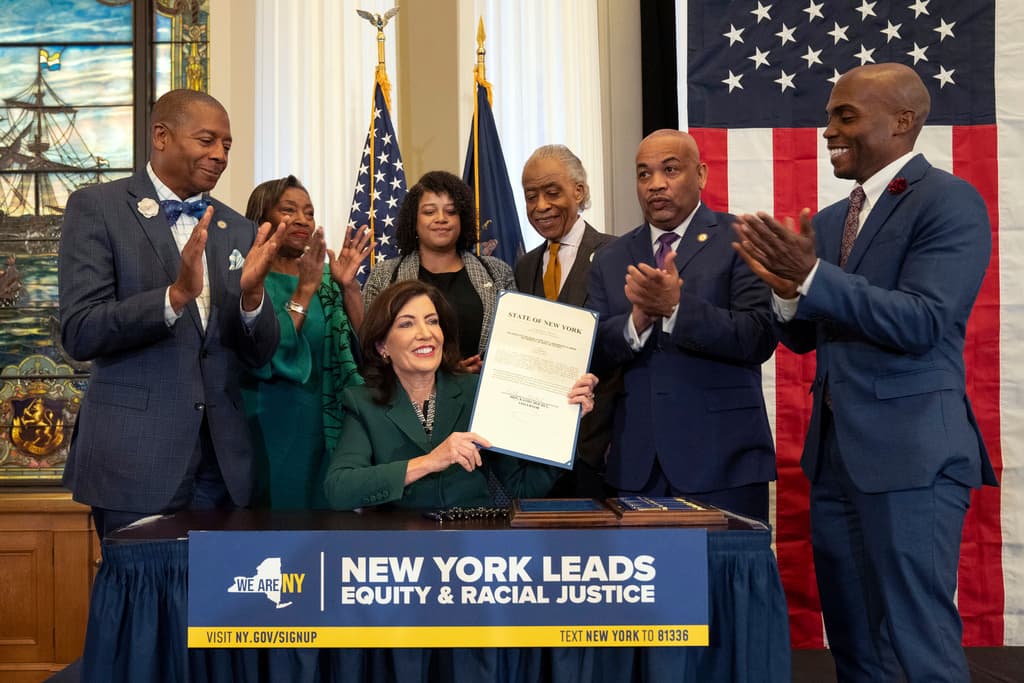New York City Council Expected To Greenlight Sweeping Reparations Study, Wall Street ‘Slave Market’ Sign
The measures are expected to pass both out of committee and be approved by the full City Council on Thursday.

Nearly 200 years after slavery was outlawed in New York, proponents of a New York City reparations package tell The New York Sun they’re expecting the sweeping measures to pass in a City Council vote Thursday, in a move that could one day lead to monetary payments and public apologies.
The Committee on Civil and Human Rights will vote on four reparations and slavery-related measures that include authorizing a study of “the historical and present-day role” of the city’s government in “perpetuating slavery and related racial injustices.” The study would recommend “legal, policy and other measures to help remedy or redress associated harms,” such as “monetary or non-monetary reparations, including symbolic measures such as public apologies or memorials,” the bill notes. It also would “propose eligibility criteria for receiving reparations” and would “coordinate” with the statewide commission.
A login link has been sent to
Enter your email to read this article.
Get 2 free articles when you subscribe.

